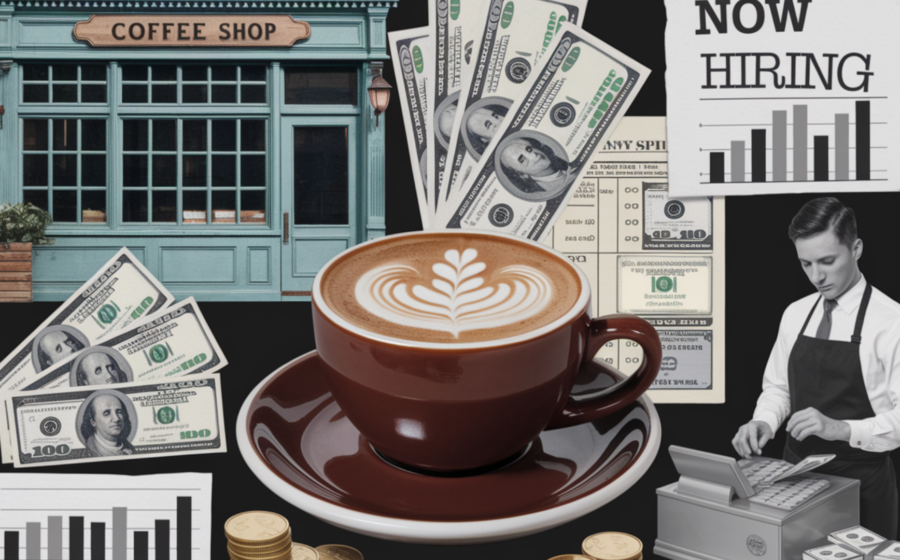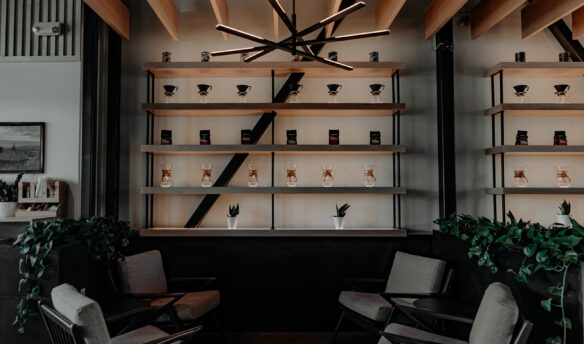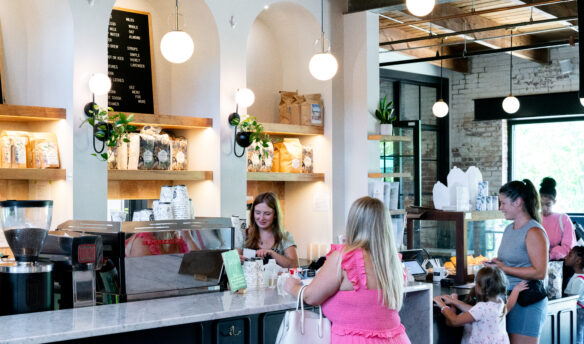What’s the financial reality of owning a coffee business? Until now, data on coffee shop and roasting company owner compensation has been anecdotal at best. So, we asked the people who know best: the owners themselves.
Our 2023 Coffee Business Owner Salary Survey gathered 155 responses from shop, roastery, cart, and catering owners across the United States to help us answer one big question: how much do coffee shop owners really make?
Before we dive in, here’s why this report matters:
- It gives owners and aspiring entrepreneurs realistic expectations
- It reveals income trends based on business type, age, and structure
- It offers benchmarks for evaluating your own compensation
- It takes the pulse of a passionate but financially challenging profession
The short answer: on average, not a lot. But the full picture is more complex.
Key Takeaways
- Average coffee shop owner salary: $48,234
- Average coffee roaster owner salary: $53,374
- Owners of both a shop and roastery: $61,635
- Owners of all three business types (shop, roaster, mobile/catering): $63,938
- 10% of owners intentionally keep their wages low to invest in the business, pay staff, or manage debt.
Is There A Clear Income Path for Coffee Shop Owners?
Yes—but it’s slower and more uneven than many expect.
Startup Phase (0–2 years): The Ramen Years
Most owners take little or no income. Many rely on a partner’s income, savings, or a second job. Some owners reported working 60+ hours per week while paying themselves less than their managers.
Growth Phase (3–5 years): Stability, Not Windfalls
Owners begin drawing modest salaries but keep reinvesting in staff, equipment, and operations. Many pay themselves just enough to cover personal needs.
Mature Phase (5+ years): A Real Salary
More established owners—especially those with multiple locations—finally see meaningful income. The $100K+ crowd averaged 16 years in business and 2.8 locations.
Does Business Age or Hours Worked Matter?
Not in the ways you’d think.
- Business age: Explained just ~13% of income variation. Some 20-year-old businesses paid <$100K; others paid nothing.
- Hours worked: Explained less than 1% of compensation. Several owners reported earning $0 while working 60+ hours per week. Some part-time owners earned $60K+.
Translation: time in business and hustle don’t guarantee financial reward.
What Role Does Location Play?
- Towns (<10K people): $46,000 average income
- Large metros: $69,000 average income
But don’t read this too literally. Higher costs of living offset metro gains, and our smallest respondent group was from large cities, limiting confidence. One standout: a $167K earner in a town under 10,000.
Why Are Some Owners Not Paying Themselves More?
Plenty of reasons:
- 10% of owners intentionally depress their income to fund growth, maintain staff, or manage debt
- Many rely on external income to float early years
- Debt service is a major barrier to higher compensation
- Some reinvest every dollar for expansion or financial stability
“Everything we make goes right back into the business.”
“I’ve never made more than my manager.”
“My other job pays me more than I take from the coffee business.”
The Perks Beyond a Paycheck
Owner compensation isn’t just about salary. Many reported non-cash perks:
- Free coffee, meals, and equipment access
- Travel and conference expenses
- Community standing and personal fulfillment
“It’s an honest day’s wage doing something I love.”
What Can Coffee Shop Owners Do To Improve Their Income?
A few patterns emerged among higher earners:
- Operate multiple locations to spread fixed costs
- Delegate operations and focus on sales, strategy, and hiring
- Keep debt low or aggressively pay it down
- Stay in the game—longevity does help, eventually
But also:
- Don’t expand too early—premature growth can crush margins
- Price with purpose—underpricing to compete is unsustainable
The Bottom Line
Owning a coffee shop or roasting company won’t make most people rich. But with a solid strategy, financial discipline, and long-term vision, it can provide a sustainable income and a meaningful career. And that’s not saying anything about how damn rewarding it is to run a place where your community gathers.
If you’re already an owner and underpaid, you’re not alone. Use this data to benchmark your compensation, reflect on your priorities, and explore new growth paths.
















